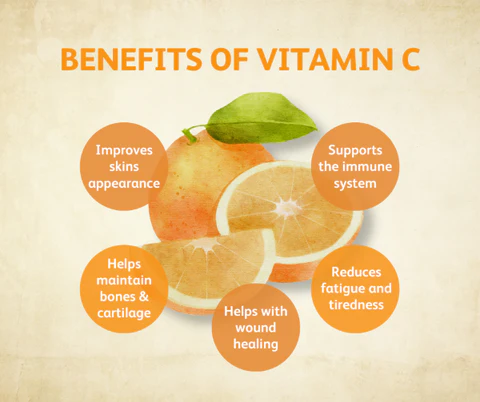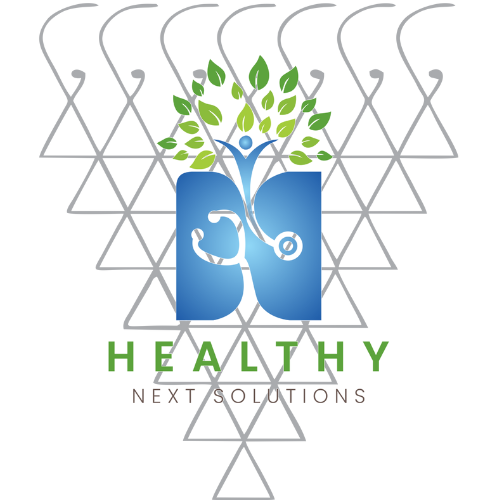
The Importance of Vitamin C: A Complete Guide to Its Benefits and Role in Health
Vitamin C, also known as ascorbic acid, is one of the most essential nutrients for the human body. Unlike many animals, humans cannot produce or store Vitamin C, making it necessary to obtain it through diet or supplements. It plays a crucial role in immunity, skin health, iron absorption, wound healing, and protecting the body against oxidative stress.
In this blog, we’ll explore why Vitamin C is so vital, its benefits, natural food sources, signs of deficiency, recommended daily intake, and whether supplements are necessary.
Why Vitamin C is Important
Vitamin C is a water-soluble vitamin that works as a powerful antioxidant. It helps neutralize free radicals, supports the production of collagen, and enhances the body’s ability to fight infections. Since the body doesn’t store Vitamin C, daily intake is essential to maintain good health.
Health Benefits of Vitamin C
1. Boosts Immunity
Vitamin C strengthens the immune system by stimulating the production and function of white blood cells. It also enhances the skin’s defense system, making it harder for pathogens to enter the body.
2. Promotes Healthy Skin
Collagen is essential for skin elasticity, wound healing, and overall appearance. Vitamin C plays a critical role in collagen synthesis, which reduces wrinkles, improves skin hydration, and supports wound healing.
3. Aids in Wound Healing
Since Vitamin C supports tissue repair, it is vital for the healing of cuts, bruises, and surgical wounds. A deficiency may delay recovery.
4. Improves Iron Absorption
Iron from plant-based sources (non-heme iron) is harder for the body to absorb compared to iron from animal sources. Vitamin C enhances absorption, making it especially important for vegetarians and women with higher iron needs.
5. Supports Heart Health
By reducing oxidative stress and lowering blood pressure, Vitamin C can improve cardiovascular health. It also helps reduce bad cholesterol (LDL) while improving good cholesterol (HDL).
6. Protects Against Oxidative Stress
Vitamin C acts as an antioxidant, protecting cells from damage caused by free radicals. This can lower the risk of chronic diseases such as cancer and diabetes.
7. Maintains Healthy Eyes
Studies suggest Vitamin C may lower the risk of cataracts and slow the progression of age-related macular degeneration.
8. Enhances Brain Function
Vitamin C supports neurotransmitter production and protects brain cells from oxidative stress, helping improve memory and cognitive performance.
Natural Food Sources of Vitamin C
To maintain adequate levels, it’s best to consume Vitamin C-rich foods daily.
- Citrus fruits: oranges, lemons, limes, grapefruits
- Berries: strawberries, blueberries, raspberries
- Vegetables: bell peppers, broccoli, kale, spinach, tomatoes
- Tropical fruits: kiwi, papaya, guava, pineapple
- Herbs: parsley, thyme
Recommended Daily Intake
The recommended daily intake varies by age, gender, and health condition:
- Adult men: 90 mg/day
- Adult women: 75 mg/day
- Pregnant women: 85 mg/day
- Breastfeeding women: 120 mg/day
- Smokers: Require an additional 35 mg/day due to increased oxidative stress
Signs of Vitamin C Deficiency
A deficiency in Vitamin C can lead to multiple health problems:
- Fatigue and weakness
- Bleeding gums
- Slow wound healing
- Frequent infections
- Dry, rough skin
- Joint pain
- In severe cases, scurvy (characterized by swollen gums, anemia, and poor wound healing)
Vitamin C Supplements – Are They Necessary?
For most people, a balanced diet rich in fruits and vegetables provides enough Vitamin C. However, supplements may be recommended for:
- Smokers
- People with limited diets (low fruit/vegetable intake)
- Pregnant and breastfeeding women
- People recovering from surgery or wounds
High doses of Vitamin C are generally safe but may cause side effects like stomach cramps, nausea, and kidney stones if consumed excessively.
Nourish. Protect. Thrive.
Vitamin C is essential for immune function, skin health, and wound healing, and can be easily obtained through daily consumption of foods like citrus fruits, berries, bell peppers, broccoli, and leafy greens. Most people meet their needs with a balanced diet, though supplements may be beneficial for smokers, pregnant individuals, or those with limited dietary variety.
Signs of deficiency include fatigue, slow healing, and bleeding gums, emphasizing the importance of consistent intake. Just as proper nutrition supports physical well-being, managing conditions like ADHD involves informed choices—such as seeking trusted information about Strattera Generic therapy under medical guidance. Whether through food or medication, sustainable health comes from reliable knowledge and professional support.
Conclusion
Vitamin C is a cornerstone of good health, supporting immunity, skin, heart, and overall vitality. Including Vitamin C-rich foods in your diet ensures you meet your daily needs naturally. Supplements can be considered if dietary intake is insufficient, but whole foods remain the best source.
By prioritizing Vitamin C, you’re not only preventing deficiency but also enhancing your body’s defense mechanisms, improving long-term health, and boosting energy levels.
References (clickable)
- Vitamin C – Health Professional Fact Sheet (NIH)
- Linus Pauling Institute – Vitamin C
- “Vitamin C: A Comprehensive Review of Its Role in Health, …” (MDPI)
- “Vitamin C in Disease Prevention and Cure: An Overview” (PMC/NCBI)
- Mayo Clinic: Vitamin C overview
- Harvard T.H. Chan School – The Nutrition Source: Vitamin C



